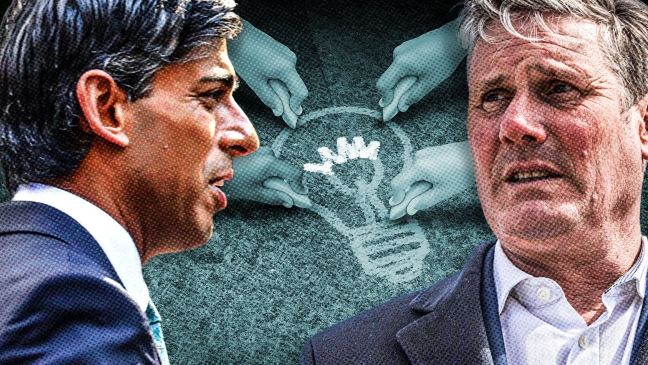From a political perspective, 2024 is a year in which very little is going to happen for most of it, but a lot is going to happen right at the end.
The election is likely to be in the autumn. The Conservatives are leaving the option of May open but no government goes to the polls before it has to unless there is a chance of victory.
This means most of the year will be dominated by campaigning, and it will be a campaign that’s even more dismal, cynical and soul-sapping than usual.
Education and the election battle
The Conservatives have little in the way of a record to campaign on, and few ideas for the future, so will focus primarily on trying to scare people about Labour with negative attacks.
Meanwhile, Sir Keir Starmer’s Labour team are determined to - in the words of one party grandee whom I spoke with - “make the target as small as possible” by avoiding big spending promises or radical policies. This will not be enjoyable to watch.
Education will not be a priority issue - despite what the politicians will say - in an election that will be dominated by the economy, the NHS and immigration. Insofar as education gets mentioned, the government will focus on defending its legacy and pushing the planned “Advanced British Standard” replacement qualification for A and T levels, which Rishi Sunak alone seems to believe will one day come to reality.
If Labour does make any substantive education proposals, it will be in early years, where it may offer to go further than the government in expanding provision. On schools I suspect we will get little detail on any future reforms.
Labour is currently espousing a “standards not structures” message - though it will quickly realise in government that those two things are inextricable.
The real-world issues
Meanwhile, in the real world, schools will continue to struggle with all of the challenges they’re already struggling with: teacher recruitment and retention, the consequences of deepening poverty and ongoing deterioration in mental health, crumbling school buildings, higher-than-ever persistent absence post-pandemic and a wider breakdown in the parent-school contract.
All with extremely tight funding.
After election day we can expect a flurry of activity. Labour will almost certainly be in power and Bridget Phillipson will be secretary of state for education.
It will want to start with a display of energy, with numerous announcements in its “first 100 days”. Given that the party’s plans for schools are not advanced, this is likely to take the form of lots of reviews - including a major one into curriculum and assessment.
The person chosen to lead this review will be critical and give a strong clue as to what it is likely to conclude some time in 2025.
Private school VAT impact
We might also see speedy action on Labour’s promise to apply VAT to private school fees, perhaps being announced in an early “emergency” budget, as a way to raise some revenue, with legislation following in a finance bill that the lords are not allowed to overturn.
This will probably get more column inches than anything else Labour does on education in its first year but in practice it will have limited consequences - raising around £1.5 billion a year with a small drop off in the numbers going private.
It will cause some logistical problems in places like Oxfordshire that have lots of private schools and full state schools, but in most parts of the country, where school rolls are falling, the change will pass unnoticed.
Changes at Ofsted
Elsewhere, the new chief inspector, Sir Martyn Oliver, will want to start his tenure at Ofsted with a charm offensive and a big “listening exercise” before changing anything significant.
There is little point in him embarking on anything substantive until Labour is in government and has announced its plans.
Labour has talked about ending overarching judgements in inspection reports and bringing in a “scorecard”, but that could mean lots of things in practice and will have wider ramifications for the way schools are regulated and supported. So it will need some thought.
It won’t be until well into 2025 before we get a really good sense of Labour’s plans, with an inevitable White Paper, followed by a schools bill.
We can only hope that Labour chooses to engage with the problems that schools are actually facing. In the meantime, our remarkably resilient system will keep going in the absence of political leadership, as it has been doing for many years.
Sam Freedman is a senior fellow at the Institute for Government and a former senior policy adviser at the Department for Education





